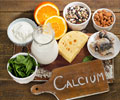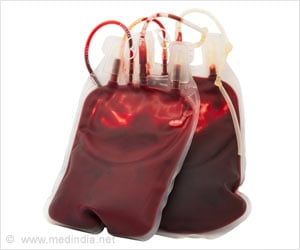Researchers in their new study suggested that, along with calcium, protein may also an important role in preventing bone loss. Getting enough calcium
Researchers in their new study suggested that, along with calcium, protein may also an important role in preventing bone loss. Getting enough calcium is essential for building and maintaining healthy bones. During a 2-year study of 200 elderly men and women who were taking calcium citrate malate and vitamin D supplements, investigators found that bone mineral density increased most in people whose diets contained the most protein irrespective of the plant or animal source.
Drs. Bess Davson-Hughes and Susan S. Harris at Tufts University in Boston, Massachusetts, felt, that the present study suggests that bone mineral density may be improved by increasing protein intake in many older men and women, as long as they meet the currently recommended intakes of calcium and vitamin D.Dietary protein was combined to increased bone density only in people who were taking supplements. Protein intake did not have a noticeable effect on bones in study participants who were assigned an inactive placebo pill. Additional research is needed to see whether protein improves bone density in older people who get all their calcium and vitamin D from dietary sources, not supplements, Dawson-Hughes and Harris note.
The relationship between protein and bone density is not clear-cut. Some studies have detected a decreased risk of bone loss and fracture in people who consume high levels of protein. But other studies have linked protein consumption to an increased risk of fracture, especially in people who consume high levels of animal protein.
Dr. Robert P. Heaney at Creighton University in Omaha, the more protein a person eats, the more calcium is excreted in urine. But the results of the study suggest that concerns about protein intake are "probably unfounded". He felt that, one needs both calcium and protein for bone, and if your diet has plenty of both, then your bones are likely to be in better condition than if you are short on one or both of these nutrients. Heaney added that the study and other recently published research "go a long way toward refuting" concerns that animal protein is bad for bones.











